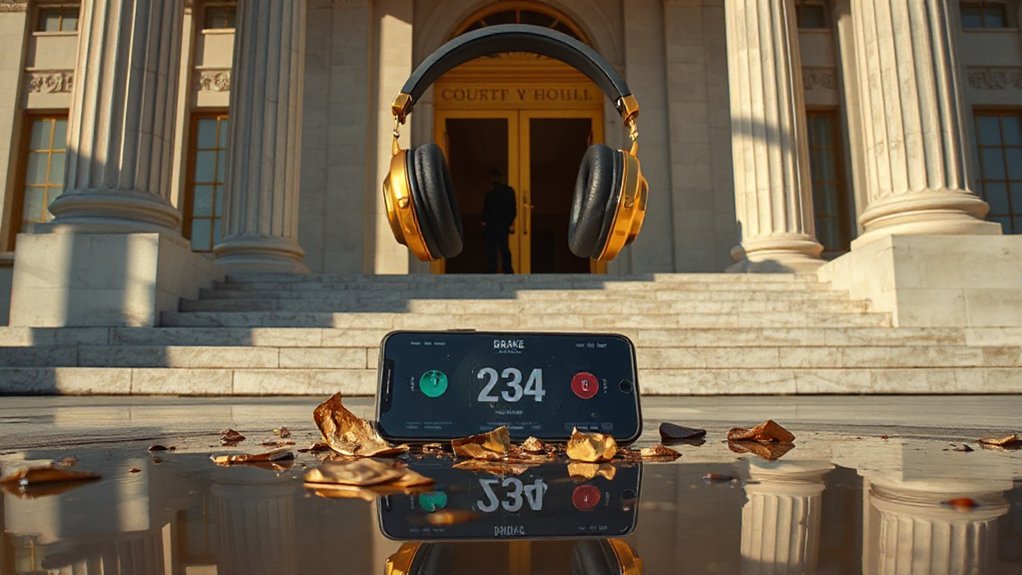A major music industry player has launched a lawsuit against Spotify, claiming the streaming giant allowed billions of fake streams for Drake’s music. The unnamed music rights holder and label filed the case in a U.S. court, alleging that Spotify has either permitted or failed to prevent artificial inflation of Drake’s streaming numbers.
Spotify faces legal challenge over allegedly permitting billions of fraudulent Drake streams on its platform.
The lawsuit suggests that bot-driven streams have manipulated Drake’s statistics, potentially leading to unfair royalty distributions. If true, these fake streams would have wrongfully diverted money away from other artists and rights holders while artificially boosting Drake’s earnings and chart positions.
Drake stands as one of Spotify’s most-streamed artists globally, with his popularity directly affecting his income and industry standing. The plaintiff argues that the alleged streaming fraud has caused significant financial damage, as streaming revenue represents a vital income source in today’s music business.
Spotify has consistently denied involvement in fraudulent streaming practices. The company maintains it uses anti-fraud technology to detect and prevent fake streams. Their potential defense might highlight these automated detection systems and deny knowledge of any manipulation.
This case emerges amid growing industry concerns about streaming fraud. While similar allegations have surfaced in recent years, no definitive industry-wide standards exist for detecting and penalizing fake streams. Previous cases have sometimes ended in settlements or contract revisions.
The lawsuit could have far-reaching consequences for the music streaming industry. If successful, it might result in financial compensation for the plaintiff and force Spotify to implement stricter verification procedures. Other artists and labels might follow with similar claims or demand streaming audits.
The case raises broader questions about the legitimacy of streaming metrics, especially for top artists. As the first major lawsuit directly challenging the authenticity of a superstar’s streaming numbers, it could establish important legal precedents regarding streaming fraud and reshape how royalties are calculated and distributed throughout the industry.









